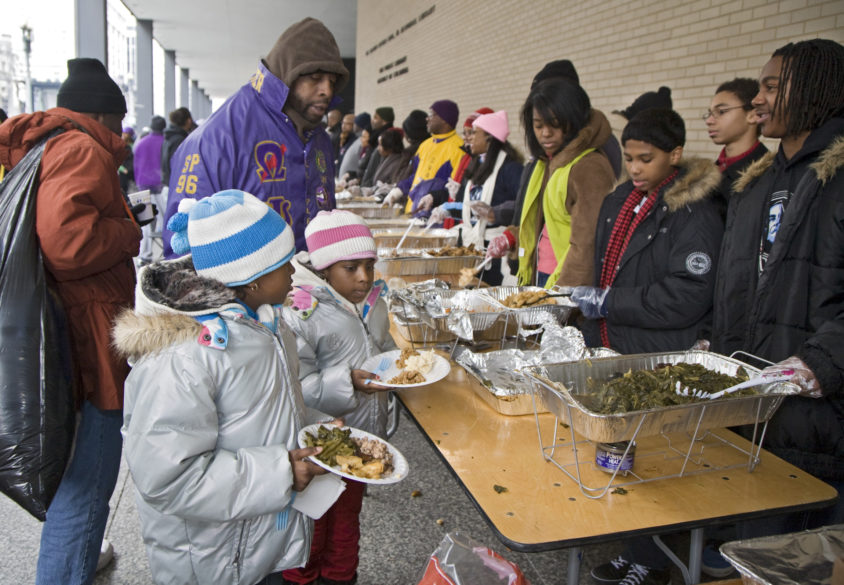By Carol Zimmermann
WASHINGTON (CNS) – Fifty years ago, the White House sponsored a Dec. 2-4 conference on food, nutrition and health designed to set the groundwork for a national nutrition policy and to advise President Richard Nixon on the best ways to eliminate hunger in the U.S.
The conference succeeded in initiating policies to improve school lunch programs and nutrition education and to give more consumer protection – which led to the nutritional labeling food buyers are now accustomed to.
The conference also helped develop the Women, Infants and Children program, which offers supplemental food assistance to low-income pregnant women and mothers and children up to age 5, and it paved the way for the first major expansion of the Supplemental Nutrition Assistance Program (SNAP), which helps low-income individuals and families buy food.
Fast forward 50 years and food policy advocates still have a lot on their plates, in efforts to address food insecurities as well as growing food-related epidemics of diabetes and obesity. They also want to ensure policies that took shape 50 years ago do not face pending cuts by President Donald Trump’s administration.
Several of the event panelists cited troubling statistics on hunger. Notably, the U.S. Department of Agriculture’s 2019 Household Food Insecurity report said more than 37 million people in the U.S. struggle with hunger.

Other statistics they shared, compiled by Hunger Free America, include:
– 14.3 million households were food insecure with limited or uncertain access to enough food.
– More than 11 million children are food-insecure.
– Many households that experience food insecurity do not qualify for SNAP and rely on local food banks.
No one needs to tell these facts to those who work in public policy at Catholic Charities USA or its local agencies providing food to those in need.
Anthony Granado, vice president at Catholic Charities USA, said there are several food policies that have the support of Catholic Charities, the U.S. Conference of Catholic Bishops, the Catholic Health Association, Catholic Rural Life and the Society of St. Vincent de Paul.
Those groups submitted a joint comment objecting to the Trump administration’s proposal to tighten eligibility standards for SNAP that would cause about 3.1 million to lose food stamp benefits.
The comment, submitted Sept. 23, called SNAP the “first line of defense against hunger.”
They also said the proposed changes to SNAP would bring more people to charities for help when they are already feeding millions each year.
“Our organizations already struggle to meet the needs in our communities and are forced to turn away many for lack of resources. The proposed rule, if implemented, will only add to a demand that we cannot meet,” their comment letter said.
Lizanne Hagedorn, director of Nutritional Development Services for the Archdiocese of Philadelphia, knows all about food needs and hasn’t seen them decrease by any means.
As the head of agency that administers local federally funded child nutrition programs and a community food program, Hagedorn said those who come for help are not always atypical; in recent years the agency has seen more senior citizens and college students. She also has seen a shrinking pool of volunteers to serve those in need at food pantries.
“It’s in our blood as Catholic Christians to be good stewards of food and money and to bring everybody along,” Hagedorn said. “Not in an overbearing way but understanding ‘there but for the grace of God go I.'”
